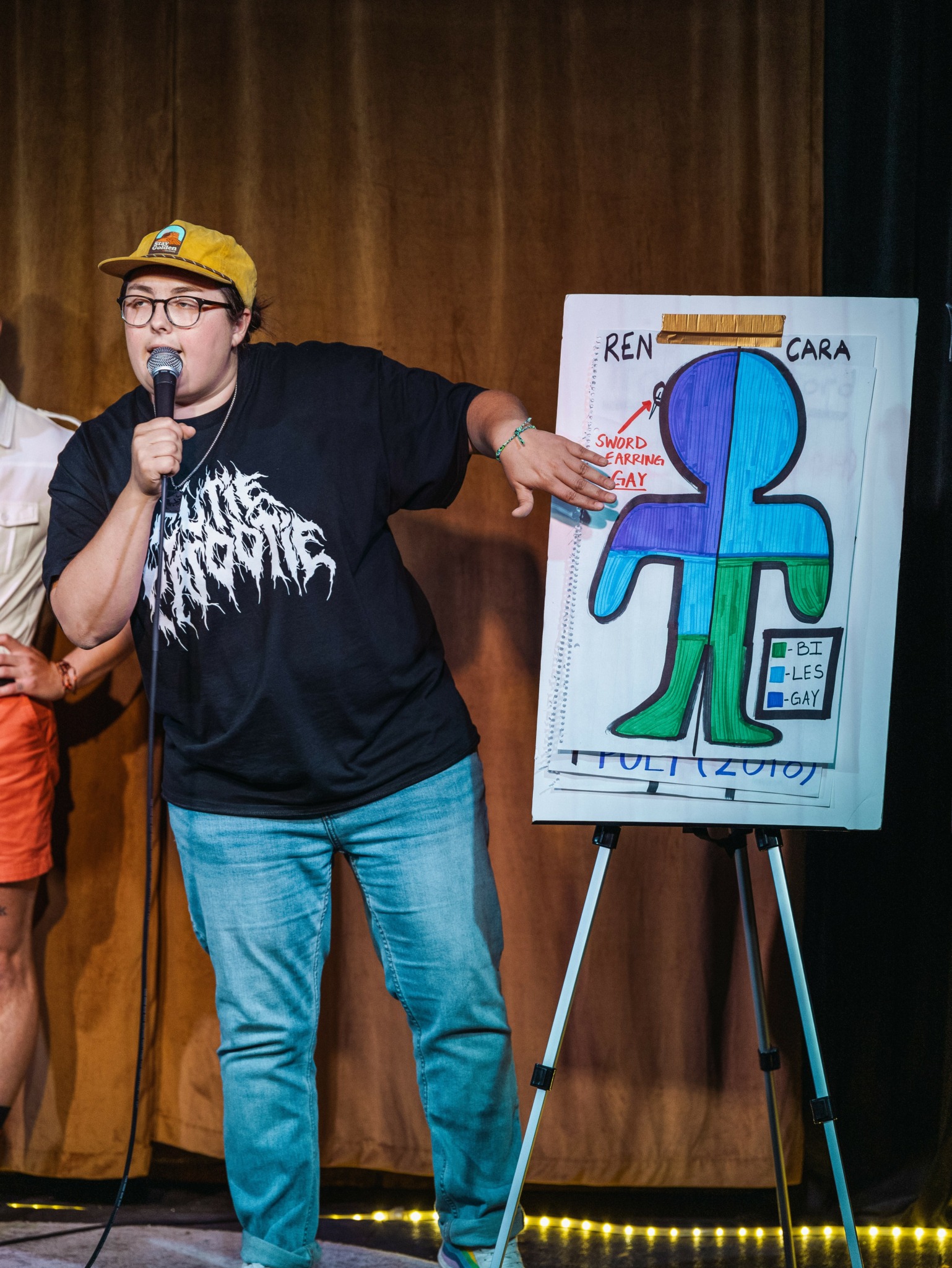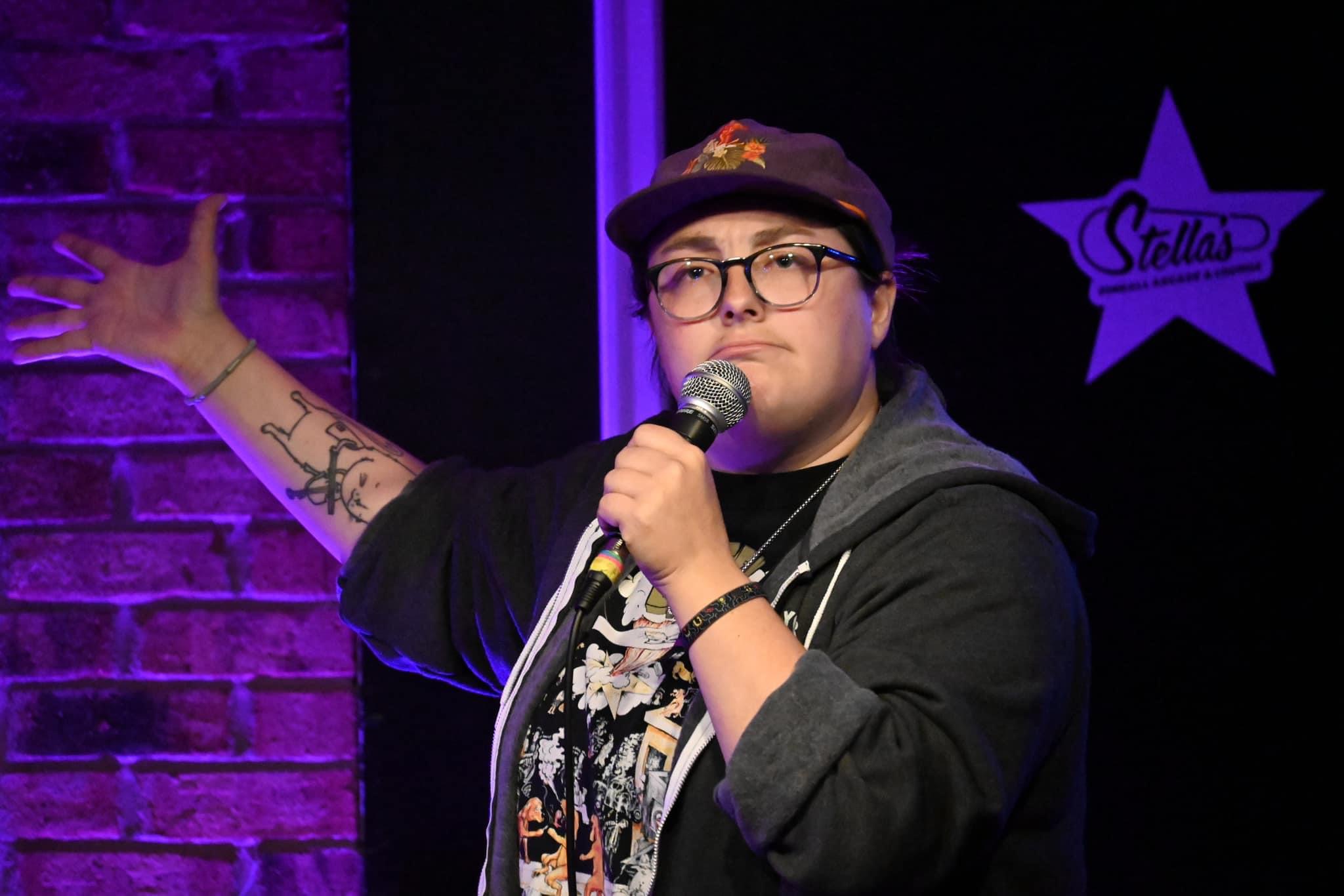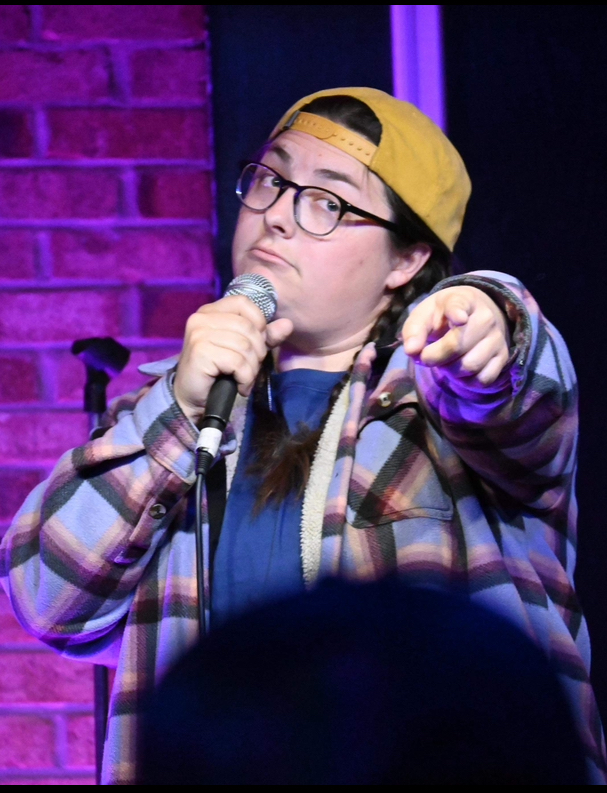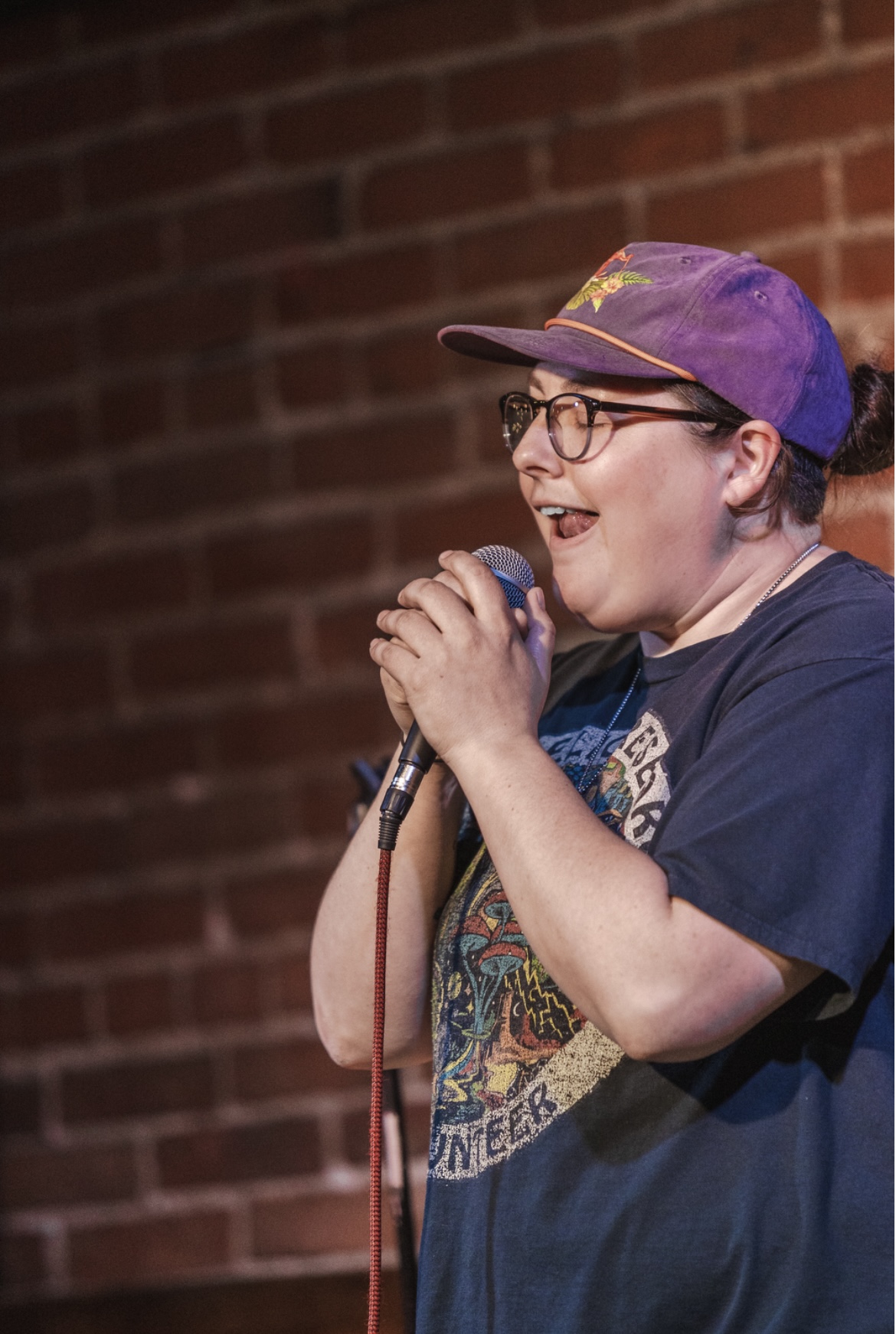We caught up with the brilliant and insightful Cara Leoni a few weeks ago and have shared our conversation below.
Cara, looking forward to hearing all of your stories today. Do you wish you had started sooner?
If I could go back in time, I find myself very happy with when I started my creative career. While I sometimes wish I had jumped into stand-up comedy sooner, I realize that my ability to handle rejection and my self-confidence weren’t fully developed until I was in my late 20’s. I began my comedy journey at 29, in December 2022, after years of creative writing—crafting stories, poetry, and expressive letters to partners. I had always been the “silly goose” in my friend groups and workplaces, making it my entire personality to bring joy and laughter to those around me.
Reflecting on my path, I first thought about doing stand-up comedy back in 2014 at an open mic on campus. However, that idea was overshadowed by stage fright and uncertainty about the craft itself. I struggled with self-doubt, poor self-image, and a lack of confidence in my voice and message. Between 2014 and 2022, I experienced significant personal growth. In my early 20s, I dated the wrong people and connected with friends who didn’t align with my values. Over time, I rediscovered those values and grew more self-assured.
By the time I stumbled upon a local comedy open mic at 29, I felt ready to take chances and handle rejection. I knew who I was at my core, which helped me realize that rejection was often based on others’ perceptions, clouded by their own judgments. When I finally stepped on stage, I thought, “I could do this!” It’s remarkable to look back and see that I had already crafted much of my first five-minute set from jokes I’d posted on Facebook over the years.
Having been a teacher for six years, I had a natural ability to demand attention in a room. With my newfound self-actualization, the ability to engage an audience, and a wealth of material drawn from my life experiences, I found myself in an incredible position. After my first open mic, I was even booked for a show; from there I stumbled along at mics as I developed a presence on stage.
If I had started years earlier, I might have given up after facing some tough mics, but if I had waited longer, I could have felt too old, as the scene tends to skew young. It seems I inadvertently found the perfect timing for myself. I’ve always known I loved my creative side, but I never fully grasped the profound impact that embracing creativity daily would have on my life. Since starting comedy, my life has improved on so many levels as a result.

Great, appreciate you sharing that with us. Before we ask you to share more of your insights, can you take a moment to introduce yourself and how you got to where you are today to our readers.
My name is Cara Leoni, and I’m a stand-up comedian, creative writer, and producer of comedy shows. While these titles resonate deeply with my self-expression, my day job is as a special educator in public schools. I’ve always known I wanted to work in education, but it wasn’t until college that I chose the path of special education. It’s crucial for me to have a hand in uplifting communities, to empower students, especially considering the fact that students with disabilities are twice as likely to end up incarcerated.
How did I get here? From childhood to adulthood, I immersed myself in comedy—listening to comedians on YouTube, enjoying specials on MySpace, reading books by funny people, and tuning into podcasts filled with humor. Humor became my lens for viewing life, a way to connect with others and process my own experiences. If I could laugh at the things that hurt me, it took their power away.
For much of my life, I tried to fit into a box. I realized I was queer in middle school and, after being outed, spent years defining my identity in ways that felt acceptable to those around me. As an adult, I followed a traditional path: seeking a partner, a career, marriage, and a family. I obsessed over being “normal,” avoiding the spotlight.
However, a breakup shattered that illusion and cracked me open like an egg. My heart may have felt broken, but it also made room for new opportunities. I shifted my focus to what I loved—attending concerts, writing, and biking instead of driving. This shift rekindled friendships, including one with a friend who was taking a formal comedy class. I was drawn to the energy and excitement.
Then, something serendipitous happened. One day, while biking to a local brewery, I stumbled upon a comedy open mic. Watching the performers, I realized that comedians are just silly people trying to share their stories and make others laugh. I’d been doing that my whole life—crafting silly stories to bring joy to my friends. I decided to return the following week and take the stage.
When I finally went up, the audience wasn’t paying much attention, and I only got a few laughs. But the supportive fist bumps from local comedians in Boulder were encouraging. I had so much fun that I made it a weekly ritual to attend open mics, practicing my craft and making new friends.
What started as one mic a week quickly grew to five, and soon, I began getting paid gigs. Comedy has become more than just a hobby; it’s evolved into a second income that has allowed me to drop one of my part-time jobs. I’m still on this journey, exploring the intersections of comedy and an unrelated full time career. I’m discovering how leaning into my passions can transform my life for the better.
I’m excited about where this creative momentum will take me next. Comedy has opened new doors, and I look forward to sharing more laughs and stories along the way!

Are there any resources you wish you knew about earlier in your creative journey?
When I first entered the world of comedy, I often felt like I was on the outside looking in, constantly asking myself, “Where do I start?” I knew there were classes available, but they were often too expensive for me to justify spending on a passion. I spent years reading comedy books and listening to podcasts, but I still struggled to find the guidance I needed. I kept wondering: WHERE DO I START?
Now that I’m more immersed in the scene, I’ve discovered numerous resources I wish I had known about earlier. For instance, there are Facebook groups dedicated to open mics and shows, as well as websites that list every single mic happening on any given day. Simply showing up and watching other comedians has been invaluable; it’s a fantastic way to improve your craft.
I’ve also learned that classes offer more than just joke writing. Friends who have taken classes have shared insights about the nuances of the scene—like what makes a good producer, how to craft effective opening and closing jokes, and the elements to consider when writing about popular topics.
If there’s one resource I wish I had known about sooner, it would be the sense of community within comedy. I never realized how connected I would feel to the friends I’ve met in the scene. Your comedy community truly lifts you up; they support you in your joke writing, encourage you after tough sets, and celebrate your successes with genuine joy.

Is there a particular goal or mission driving your creative journey?
Initially, my goal in comedy was simple: to have fun, make friends, and increase laughter in the spaces I occupied. However, over the past two years, my mission has evolved as I’ve come to recognize the power of comedy for underrepresented groups. Laughter is a universal need; everyone benefits from it. But I’ve found a particular focus in uplifting queer and femme voices.
Creating spaces where the crowd and comedians reflect one another may seem minor, but it significantly enhances the audience’s experience. Comedy shows often feature predominantly male lineups, which can lead to a disconnect; some topics may not resonate with everyone in the audience. This is where my goal comes into play: How can I cultivate a lineup that reflects the crowd, and vice versa?
A recent highlight was co-producing and co-hosting the second annual Colorado Queer Comedy Festival. Experiencing a room filled with over 100 queer people, all there to enjoy the humor of queer comics, was incredibly powerful. It allowed comedians to share jokes rooted in their own lives and experiences, while the audience connected with those nuanced themes in queer communities.
I’ve discovered that there’s tremendous power in bringing people together, and my most rewarding moments in comedy come from actively building that community.
Contact Info:
- Instagram: https://www.instagram.com/laughing.leoni
- Facebook: https://www.facebook.com/cara.leoni/

Image Credits
@studiostonic @_jaredchandler


